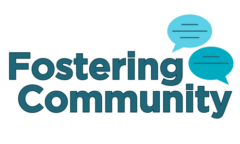The easy answer is as much as you need to feel comfortable and confident that you could pay your bills if an emergency happened. This is not always ideal or realistic though (especially with the current cost of living and inflation). I would start by saving as much as you can, for example $100 a month or 10% of each paycheck.
It can help to set goals, so that you can hold yourself accountable for the reasons you’re saving. I am planning to go to Europe with my friend next year, so I have started saving about $150 a month to prepare. Remember that your goals can fluctuate and so can your financial plans. So, if you find that your current savings plan is not working for you, try changing it up.
Here are some steps you can take to learn about saving:
Financial Literacy Training
Take control of your financial knowledge and learn about planning, saving, and more! This is a great way to keep yourself informed, especially in conversations about finances. Register for Financial Literacy Training with Children’s Aid Foundation of Canada here or contact Jasmine Yiweza at jyiweza@cafdn.org for more information.
Make an Appointment with a Financial Advisor
Book an appointment with a financial advisor at your bank for free. A financial advisor can help you with planning for the future, answer your questions about saving, and provide insight on investing. Many of these things do not need to be on your mind all at the same time, but it is important to remember that there are professional services for free that you can access when you’re ready.
Try These Budget Tools
Creating a budget can help when you are learning to save. This can help you track your spending so that you don’t have to use your savings if you don’t need to. Try the following tools to create a budget:
- Mint, a free budgeting app you can download on your phone
- Budget Planner, a free budgeting tool from the Government of Canada

